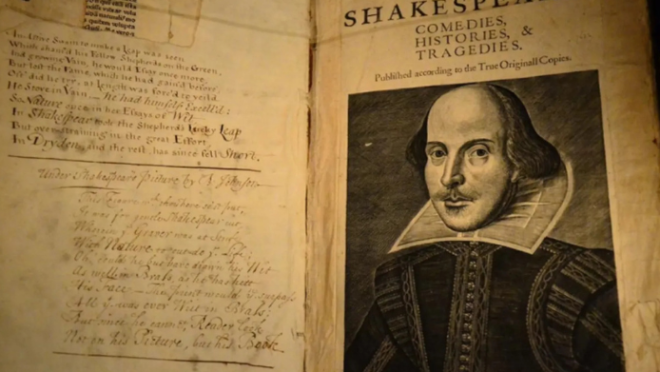With bated breath, we celebrate English Language Day: A tribute to the bard
With bated breath, we celebrate English Language Day: A tribute to the bard

It is high time we told the tale of the English tongue. A story not of a faint-hearted people but of bold invaders and brilliant poets. Long ago, the Germanic tribes—the Angles, Saxons, and Jutes—crossed the seas to Britain, and with their coming, the ancient Celtic tongues were given short shrift. These newcomers became the apple of the eye of the land, and their language laid the foundation of the English language.
But the story was far from over. In 1066, William the Conqueror arrived, and with him arrived the French language of the upper class. For centuries, the nobility spoke French, the peasants Old English, and the monks Latin. Over time, these languages mingled and created a lively, unruly language. By the 15th century, with the invention of the printing press, English began to find its standard form. It became the world’s oyster, ready to be cracked open by the speakers.
And no one spoke it better than William Shakespeare, the night owl of English literature. In the late 16th and early 17th centuries, Shakespeare revolutionised the English language. He turned ordinary words into poetic marvels and invented hundreds of new terms and phrases. His works had audiences in stitches with comedies, gripped them with tragedies, and moved them with timeless romances. More than any other writer, he breathed new life into English by coining expressions that we still use in our conversations today.
Consider, for example, the phrase break the ice, which first appeared in The Taming of the Shrew, describing a way to ease tension and start a conversation. The term wild goose chase was born in Romeo and Juliet, capturing the frustration of a futile pursuit, and green-eyed monster from Othello gave jealousy a vivid, sinister face. Laughing stock from The Merry Wives of Windsor described someone mocked by all, while with bated breath, which was coined in The Merchant of Venice, still expresses that anxious anticipation we all know. Shakespeare left us in stitches in Twelfth Night, named the most precious person as the apple of my eye in A Midsummer Nights Dream and taught us that exclaiming What the dickens! in surprise was perfectly acceptable courtesy of The Merry Wives of Windsor.
His characters wore their hearts upon their sleeves in Othello, had hearts of gold in Henry V, and declared that love is blind in The Merchant of Venice. He even taught us to say more fool you to those caught out in their folly in As You Like It and warned of outcomes that were a foregone conclusion in Othello.
Moreover, Shakespeare’s genius did not stop at phrases. He introduced entirely new words like gossip, fashionable, and lonely. His extraordinary gift for capturing human experience in language turned everyday speech into something beautiful and memorable. Centuries later, we still find his phrases slipping effortlessly into our conversations, often unaware of their poetic origin.
And so, it is no accident that 23 April, believed to be both William Shakespeare’s birthday and death day, was chosen as International English Language Day by the United Nations. The UN acknowledges how this language has become a global medium for diplomacy, science, literature, and art by recognising it as one of its six official languages.
Today, we celebrate not merely a language but a legacy. We pay tribute to the man whose pen turned ordinary speech into the world’s oyster and made English fashionable across the counties. Remarkably, all the italicised words and phrases you’ve encountered in this piece, from break the ice to fashionable, with bated breath to green-eyed monster, were coined by none other than William Shakespeare himself. As we mark this day, let us remember that Shakespeare’s English lives on within us still, in our speech, our stories, and our hearts.
As the Bard himself might say – parting is such sweet sorrow, but let us part today knowing we carry a bit of his brilliance every time we speak.


